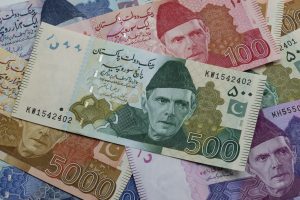Pakistan and South Korea, while distinct in their cultural and regional dynamics, exhibit intriguing parallels in their historical and geopolitical narratives. Both nations emerged from the mid-20th century crucible of division: Pakistan from British India and Korea from Japanese occupation. Each newly independent region subsequently bifurcated into two parts amid ideological and territorial disputes. Pakistan and South Korea share a legacy of partition that has fostered persistent tensions with neighboring countries. Moreover, both have navigated military dominance and the challenging quest for democratic stability.
Decades ago, their economic journeys mirrored each other, too, marked by bursts of rapid industrial growth. Despite these similarities, the paths of Pakistan and South Korea diverged significantly in economic development. In 1962, the gap between the Gross National Income (GNI) per capita of South Korea and Pakistan was a mere $30. Fast forward to 2022, and that gap widened dramatically to $34,630. Having accelerated its economy with impressive vigor, South Korea is now a high-income country with a GNI per capita of $36,190. On the other hand, Pakistan remains a lower middle-income country with a GNI per capita of just $1,560.
The developmental ladders of both nations have sharply diverged over the past few decades. In 1978, South Korea stepped into the lower middle-income bracket with a GNI per capita of $1,280, starkly contrasting with Pakistan’s modest $230. A decade later, South Korea advanced to an upper-middle income status with a GNI of $4,520, while Pakistan lagged significantly behind at $380. By 1997, South Korea had catapulted into high-income status, boasting a GNI per capita of $13,550, compared to Pakistan’s $440. This dramatic disparity in GNI underscores the profound impact of focused economic policies and robust industrialization.
South Korea’s ascent can be seen as a result of its robust innovation and development in the knowledge economy, placing it within the top 10 of the Global Innovation Index and ranking 17th in the Global Knowledge Index for 2023. In contrast, Pakistan’s struggle in these areas is evident, as it ranks 88th in innovation among 132 economies and 117th in the Global Knowledge Index out of 133 countries. This stark contrast underscores the significant impact of innovation and knowledge-focused policies on national success and challenges.
The rise of South Korea in the innovation sphere and its transition into a knowledge-based economy is deeply rooted in the chaebol system – large family-controlled conglomerates, with the term derived from the Korean words “chae” (wealth) and “bol” (clan). These conglomerates, which operate in diverse sectors like electronics, heavy industry, finance, and services, are characterized by family ownership and intricate cross-shareholdings. Major chaebols such as Samsung, Hyundai Motor Group, LG Group, and SK Group are pivotal to South Korea’s economy, greatly influencing its GDP, employment, and political and cultural landscapes. Their critical role has propelled South Korea’s swift industrialization and status as a global industrial leader.
While Pakistan was embarking on a nationalization policy, South Korea took a different approach by fostering the growth of the chaebols. These entities became catalysts for technological innovation, channeling vast amounts into research and development (R&D) – 4.9 percent of South Korea’s GDP compared to Pakistan’s modest 0.25 percent. The top three chaebols in South Korea spent an average of 8.2 billion euros in 2022 on research and development, ranking the country fifth worldwide in R&D expenditures.
Chaebols significantly influence South Korea’s economy. For example, Samsung’s resources are equivalent to 20 percent of the nation’s GDP. Notably, Samsung’s market capitalization stands at $381.4 billion, surpassing Pakistan’s GDP for 2023. In 2023, Samsung’s revenue reached $233.1 billion, nearly two-thirds of Pakistan’s GDP, highlighting its substantial economic impact. These figures illustrate the critical role chaebols like Samsung play in driving South Korea’s economic performance and global business standing.
South Korea’s chaebols have played a pivotal role beyond just enhancing the nation’s global image. They have been instrumental in fostering public-private partnerships that bolster infrastructure and urban development, driving export-led growth, and making substantial investments in R&D. These conglomerates also contribute to job creation and economic stability, underpinning South Korea’s economic success on multiple fronts.
As Pakistan embraced nationalization to improve wealth distribution, South Korea’s government embarked on a different path, supporting its chaebols by enabling technology partnerships, licensing, and investing in infrastructure, all within a supportive regulatory framework. Strategic planning through successive five-year economic plans harmonized these corporate giants with national objectives. This symbiotic relationship has been pivotal to South Korea’s swift industrialization and economic success.
Pakistan could look to South Korea as a blueprint for economic development by emphasizing efforts to nurture the private sector and expansion of conglomerates with the aid of supportive policies. Unlike South Korea, where large firms such as Samsung and LG have significant global presence and market capitalizations, most Pakistani companies are relatively small, typically under the $2 billion mark. For Pakistan to enhance its standing on the global stage, it needs to prioritize innovation and embrace advanced technologies by boosting investment in research and development. This strategic pivot could empower Pakistani corporations to expand their influence and operations internationally to enhance the nation’s global image.

































